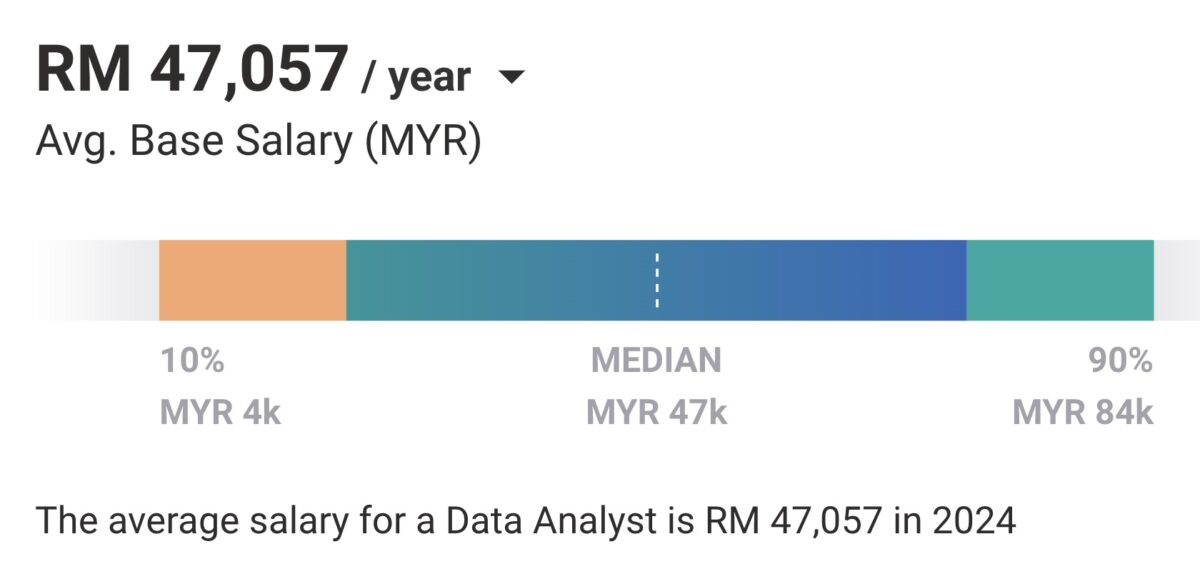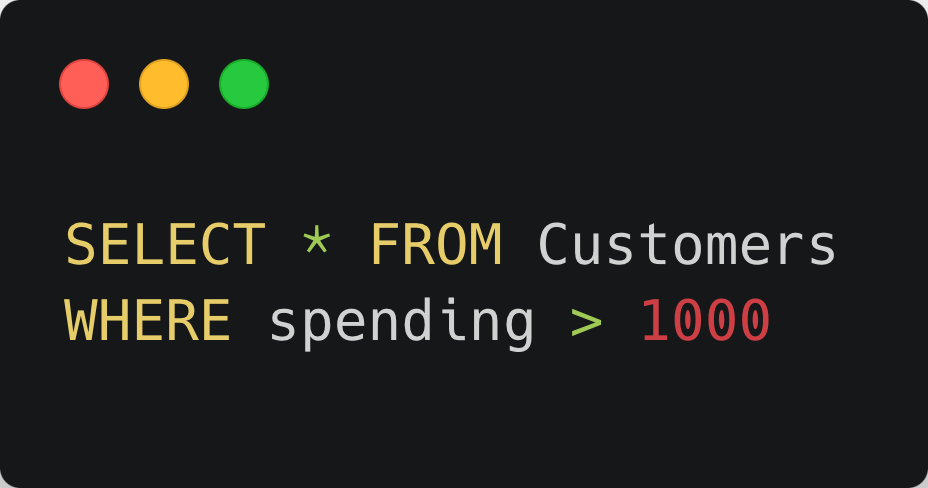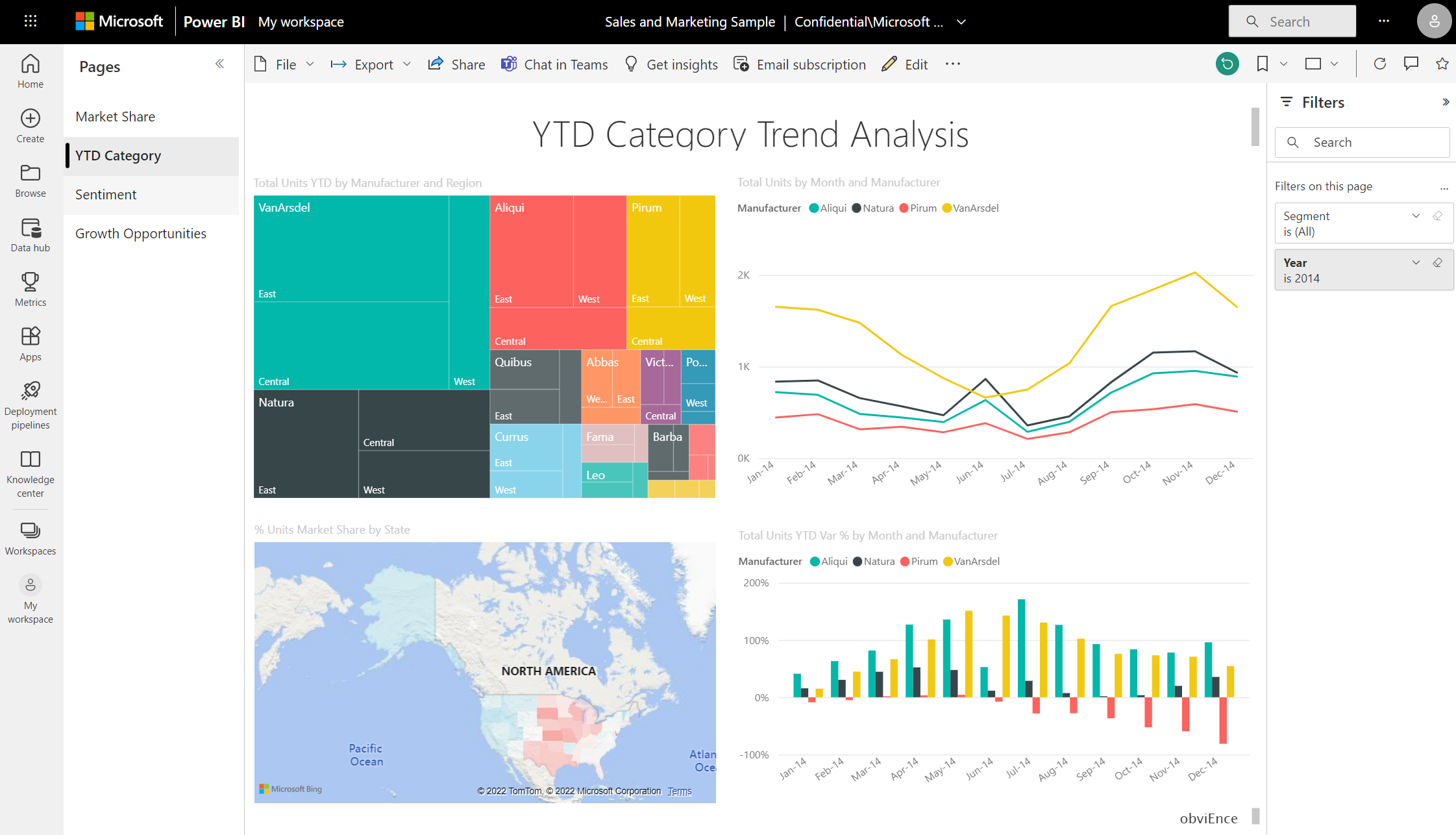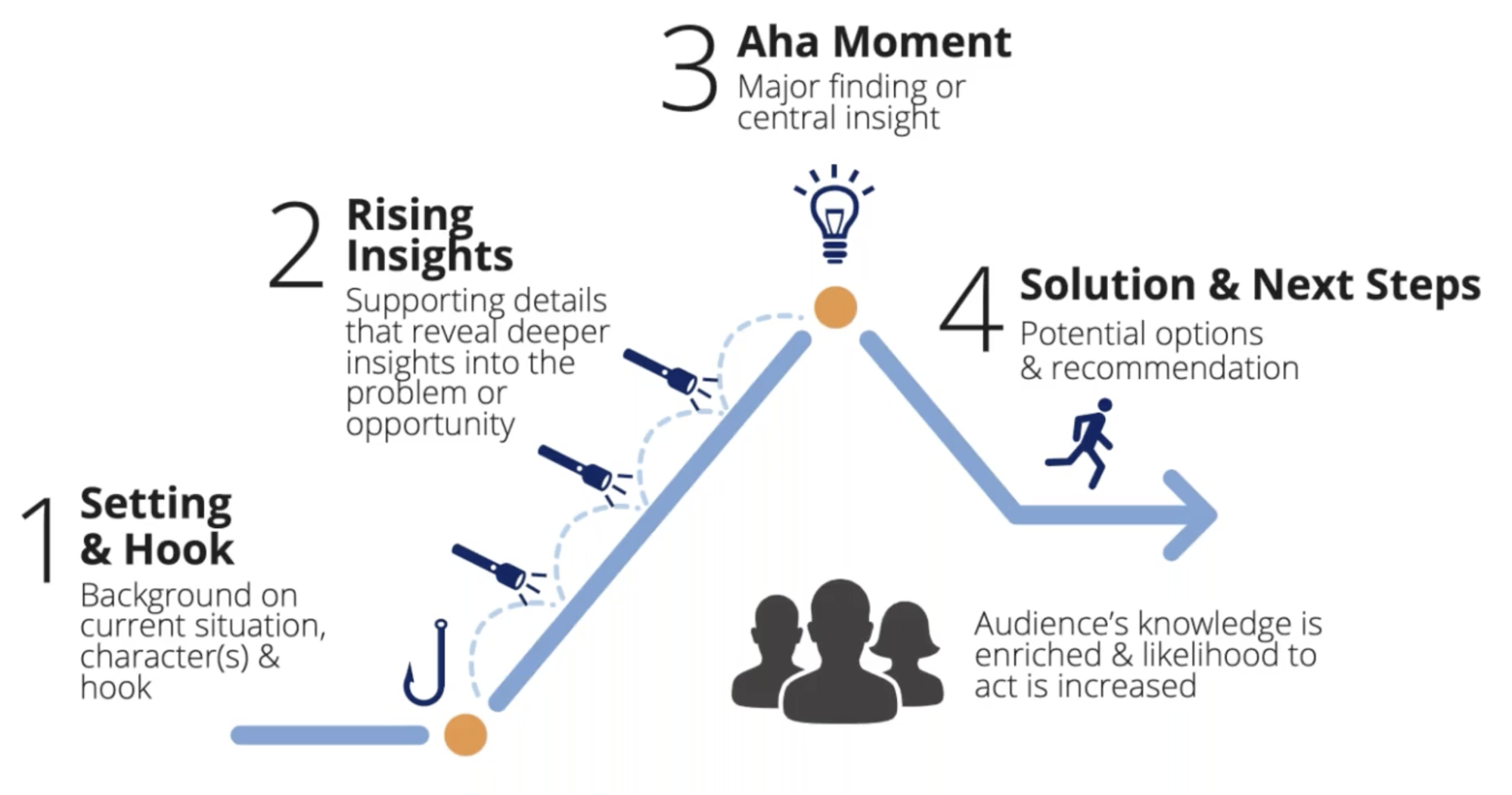Introduction
A data analyst is a crucial first hire for companies building their data teams. This role consistently ranks among the top 10 in-demand jobs in Malaysia.
According to Payscale, the average data analyst in Malaysia earns around RM 44,472 to RM 56,063 per year.

The salary of a data analyst depends on
- Skills
- Experience
- Industry
A junior data analyst is an ideal entry point if you are starting a data analyst career.
Junior Data Analyst
Salary range: RM 2,846 – RM 4,667 (source)
A junior data analyst handles entry-level data analysis tasks.
You’ll need a mix of technical and soft skills. On the technical side, you need to make your data “speaks” using tools like SQL, Excel, and PowerBI.
Data Analyst
Salary range: RM 3,100 – RM 5,250 (source)
After working as a data analyst for 2-3 years, you are now considered experienced.
Companies expect you to handle analytics projects on your own.
You should know the whole analytics process, from collecting data, cleaning it, visualizing it, to finding important insights.
Reporting is a big part of a data analyst’s job. You need to create reports on demand and build dashboards to track key metrics.
This helps stakeholders get real-time data and insights.
Communication skills are also very important for a data analyst.
You must be able to explain complex data in a clear and simple way to people who aren’t technical. This ensures that your findings are easy to understand and use.
Senior Data Analyst
Salary range: RM 6,007 – RM 8,441 (source)
A senior data analyst’s main job is to turn raw data into actionable business intelligence.
They use advanced methods like regression analysis, hypothesis testing, and predictive modelling for forecasting.
Senior data analysts also work with people from different departments in a company. They find out what kind of information each group needs, and work with technical departments to make sure their needs are supported.
Senior data analysts will also set Key Performance Indicators (KPIs) to keep track of business performance.
They ensure analytics projects are finished on time, and will help manage and mentor junior analysts.
Lead Analyst / Analytics Manager
Salary range: RM 5,667 – RM 9,580 (source)
A lead analyst or analytics manager is a key person in a company’s data team. They lead a group of data team members to plan and oversee data projects.
They make sure these projects finish on time and within the budget.
Analytics managers also create plans for how the company should use data. They think of ways data can help the company grow and work better.
It’s their job to make sure the data is correct, good quality, and kept safe. They design data governance policies and make sure everyone follows them.
Another important part of the analytics manager’s job is to cultivate the data culture in an organization.
They encourage people to use data to make decisions. This helps to make sure data is valued and used throughout the company.
Chief Data Officer
Salary range: RM 9,887 – RM 28,457 (source)
Companies that consider data as their valuable assets will hire a Chief Data Officer (CDO).
Their main job is to drive data initiatives in the company and make sure these initiatives align with the company’s visions.
A CDO’s salary and responsibilities are on par with other C-level management like the CFO (Finance), CTO (Technology), and CEO (Executive).
The CDO needs to create a roadmap for how the company stores and uses its data. This plan should work well for everyday tasks and also be able to scale as the company gets bigger.
Another important aspect of the CDO is to find ways to use data to help the company. They use data to grow the business, help people work better, and make customers happier with the company’s products or services.
What are the skills that affect the salary of a data analyst?
SQL

The most crucial skill for a data analyst is SQL.
Data analysts spend about 80% of their time using SQL to retrieve data from databases and the rest managing data and writing results back to the database.
SQL allows you to filter, sort, and aggregate data, as well as pull data from multiple sources for comprehensive analysis.
Knowing SQL will also help you to communicate better with software and data engineers, helps solve data-related problems, and improves the reliability of your analyses.
Without SQL, you’ll always need help from colleagues to prepare data for you, as a result, will slow down your progress at work.
PowerBI

Another key tool in the data analyst toolbelt is the BI (business intelligence) tool.
PowerBI is one of the leading Business Intelligence (BI) tools in the market developed by Microsoft.
In case you want to ask: “what if I don’t know PowerBI but I know other BI tools?”
That’s fine. The skills used in most BI tools are transferrable.
If you know how to use Google Looker Studio, Tableau, or any other BI tools, you should be able to pick up Power BI within 2-3 days.
Storytelling
In today’s business world, simply uncovering insights is not enough.
Your job is done only if you can convey the meaning of the insights to the stakeholders and motivate them to take actions.
Therefore, data analysts must be able to combine data, visuals, and narrative, to create compelling stories that captivate their audience.
Storytelling aligns with how humans are wired to think, as stories have the power to engage people on both an emotional and intellectual level.
Here is an example of a framework that helps you to tell a compelling story that captivates your audience.

Conclusion
Being a data analyst in Malaysia offers a promising career path with competitive salaries.
As long as we continue to produce data, the demand for skilled data analysts will never drop. You can look forward to a rewarding job in this field with the right skills and education.
So, if you enjoy using data to solve problems and want a career with a bright future, becoming a data analyst is certainly a great fit for you.


0 Comments